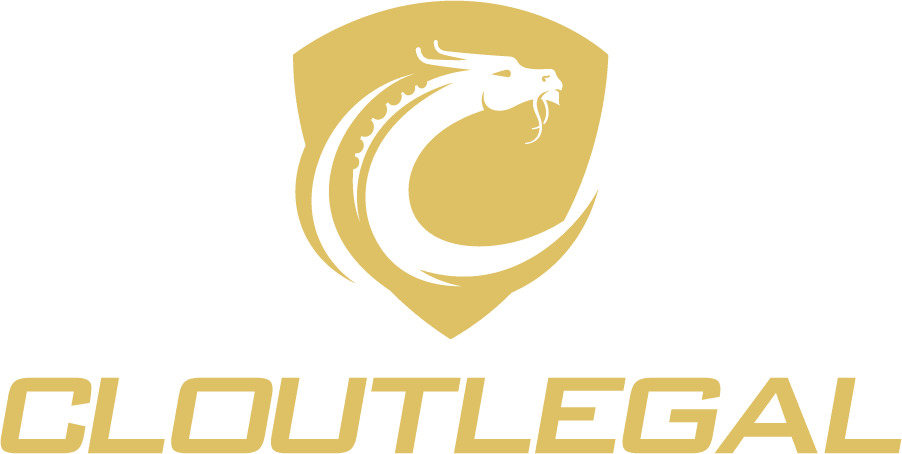Have you ever thought about your online assets?
It was a sunny September day in otherwise rainy Bilbao. My flatmate at the time, Louis, just had a chat with his sister (she was based in Colombia).
"So, what did your sister say, how is she?"
"Fine, fine...but we didn't have much time to chit-chat on Skype today. I wanted to make sure she knows what to do with my digital accounts in case I...well, you know…"
"Uhm, no..?"
"Well, if I, uh… die…"
(awkward silence) "But... why do you think about that now? It's not like you are ill or anything…"
"Yes, but, you see - I fly very frequently, and...you just never know…"
"Oh…"
It has been nearly ten years since that conversation. And it still sits fresh in my memory like it was yesterday. Even back then (I was in my twenties), it made me think - we take certain things very much for granted.
And social networks were also pretty early back then. Looking back, they weren't as ingrained in our daily lives - as it is the case today. Who would have thought about what happens with those accounts after users would pass away?
Responsible to protect our footprint
The further we go, the more accountable we get to preserve our digital assets.
(here I consider these "assets" in the broader sense - including any online account we have ever made, for whatever reason)
On average, a European citizen has about a hundred accounts per email address. And quite often they keep all the passwords to themselves.
What happens to all those accounts in unforeseeable circumstances?
Photo by Lee Ferrell on Unsplash
Billions lost every year in unclaimed assets
According to Cedric A. Horstmann and his team at NineBarc, $58Bn are lost EVERY YEAR on unclaimed assets. That is a vast number, and it just shows that people rarely plan for bad times.
While I attended the Berlin Legal Tech Hackathon in late February, I had mixed feelings about all the legal tech startup pitches.
Some lacked articulation or a sense of focus. Others were so-called "me-too" businesses that were late to the party for at least five years (and possibly much more).
Cedric's NineBarc is clearly in none of the above categories. It was the very first idea that was crispy clear, articulate, and (in my possibly biased honest opinion) solving a real problem.
And the problem in question? People don't have a proper way to secure and pass on their digital assets to their heirs and loved ones.
I caught up with Cedric and his team during the Berlin Legal Tech Hackathon. They are an excellent example of critical thinking. Hence we are sharing their story.
Accessing digital accounts may be borderline impossible
Q: Would you tell us a bit about NineBarc in your own words? The backstory, where did the idea come from, and what are you trying to achieve?
Cedric A. Horstmann: About a year ago (in early 2019), Hans Hosenfeld, Corey Ellis, and myself teamed up around this subject. It was in the context of a university project, and we decided to delve right in.
Now, for the backstory...
Corey and his family had just been through a hard time of grievance and difficulties. His grandfather, who had lived in the US, has passed away. Sadly, all the critical documents, as well as the legacy key information, vanished with his grandfather.
There was no will and no documentation about the assets.
Corey's family has been trying to continue the estate of the late grandfather. They had to indulge with tons of red tape and a rather painful process.
All of us have had similar experiences before. Hence, we realized how big of a problem this is in the open world. Accessing and taking control over digital accounts and assets may be borderline impossible if you don't prepare in advance.
Photo by Ari He on Unsplash
Average citizen doubles their digital footprint every five years
Q: You mention dated legal institutions constitute a part of the problem. The way we provide property succession hasn’t changed since good Lord knows when. What do you think needs to change in the contemporary world, so the public institutions follow and protect the new (digital) reality of our and upcoming generations?
CH: The traditional succession procedure hasn't changed in decades. It has likely worked before; nowadays, it is bureaucratic and inefficient.
For example, visiting notaries is still a part of the process. This is not only time-consuming - it is also very costly. All this results in people hesitating to plan their digital legacy adequately.
Moreover, notaries barely cover the digital asset class. They lack adequate training.
The average European citizen doubles their digital footprint every five years. Passwords and other vital references are often not shared, lost, and cause headaches to heirs. Missing financial assets, e.g., online bank accounts, cryptos, or copyrights, can induce serious waste.
In a contemporary world, notaries and legal service providers need the right tools to follow the dynamics of digital assets.
These can, for example, be the tools that foster communication between counselors and clients. With the help of tools, adjustments to wills should be made more accessible and cost-effective.
A new regulatory framework for digital ownership
Q: How do you think regulations should change (if at all) to enable new solutions?
CH: Certainly, some adjustment of regulations would be helpful. For example, the Frauenhofer Institut für sichere Informationstechnologie has published a “Digital Legacy Study” in 2019 that included some recommendations in this regard.
Namely:
1) The provisions that regulate the Central Register of Wills may be extended to allow registering a so-called digital pension deed. This, in turn, would simplify the procedure. Moreover, it would provide additional security for consumers.
Finally, in succession cases, it would allow for expedient processing, given that the pension provision certificate would be disclosed once the will is opened.
2) The Notarisation Act should enable notaries to issue copies of deeds in a digital form. This would simplify the legitimization of authorized representatives during transactions. However, proper technical security requirements must be ensured to preserve the evidential value of the digitally issued deeds.
3) Additionally, it is paramount to further develop the Electronic Document Archive into a register of titles and PoAs. Providing such reliable references would simplify the identification of authorized representatives for pension plans, which could be carried out digitally.
Of course, other areas could be optimized over time. However, the above three points are a good start.
Photo by Anders Jildén on Unsplash
NineBarc helps you secure and pass on digital assets
Q: How does NineBarc help fix the problem? You mention that “NineBarc prepares your digital legacy and walks you through your digital footprint...“. Would you please elaborate?
CH: NineBarc educates users about digital legacy. We want to help everyone understand what information, data, and accounts could have value.
This value does not always have to be monetary. Assets like photos, videos, or even music could have emotional value too.
Moreover, think about sensitive information in conversations of various messaging apps. Would you want your legal heirs to get hold of this information?
These are just some of the issues we would want our users to consider.
Q: You mention that NineBarc "has drafted a process together with inheritance experts (i.e., lawyers and notaries) to ensure that your assets will go the path you want...".
Could you share a bit more there? How exactly does the process look like, and how is it made compliant?
CH: Correct. This is a core component and the magic behind our business model. We have to able to act upon our users' wishes and distribute the assets in a legally binding way, even where there is no will.
We aren't able to reveal more, due to arrangements with our key business partners. The cool thing is, all this is possible!
Taking succession to the digital age
Q: From your website, we could see that you provide guidance. Additionally, your solution is supported by your product. Could you walk us through both of those? What is the role of the consultation, and what of the product?
CH: Our vision is to take the inheritance process to the digital age. We want to provide the best solution that caters to various individual needs.
The initial assessment is a crucial part of our product. After a set of questions, we can make recommendations for different user profiles.
Based on the answers, we could suggest what information to store. A document checklist will support the whole experience. Moreover, we plan to educate our users via our articles and a news blog.
All of the above would prepare you to use our product correctly. In short, that would lead you to your personalized digital action plan for your assets.
Hence, we are positioning as the connection between assets and heirs - with triggers in place when to share relevant information.
Photo by timJ on Unsplash
Plans for NineBarc going forward
Q: To what extent do you consider NineBarc as an Alternative Legal Service Provider? Does that analogy fit the solutions you (are planning to) provide?
CH: We do not want to, nor can we replace legal service providers. We want to position as the digital extension of your will. Think of NineBarc as an online will for your assets and your directions on what should happen with those.
Q: What are your plans going forward? Any notable milestones (that you are willing to share)?
CH: Our first significant milestone will be to finalize our minimal viable product (MVP). We plan to launch it in May.
Likewise, we are currently talking to investors to attract the right tech-talent. Now, we are screening suitable CTO candidates to take product development to the next level.
So far, we have been bootstrapping our company, but we plan to get some more wind into our wings.
Q: Have you found any customer segment or profile particularly interesting?
CH: Our surveys identified a target customer segment of digital natives between 30-49 years with a stable income. Those customers show an affinity towards digital products and services.
Likely they own digital assets of financial or emotional value that they want to pass on to beneficiaries in case of unforeseen events. We have validated the business case and checked the legal viability.
NineBarc team and background
Q: Finally, would you please share your team’s background?
CH: We are a well-balanced core team, suited to exploit the enormous potential of this venture. We are fully committed and have shown the perseverance.
The founders are:
Hans Hosenfeld - with a degree in industrial engineering and passion for product development. His technical skills helped him gain deep insights into various technology-based projects;
Corey Ellis - studied in Germany, Thailand, Portugal, and Brazil. With such an international profile and experience in startups, Corey understands various market circumstances and dynamics;
Cedric Horstmann - fascinated by dynamic and high growth-markets, Cedric has spent his entire professional career in entrepreneurial environments. Some past experiences include a VC firm, company builders, and start-ups. He has strong communication abilities and a dedication to building and implementing market strategies.
Moreover, our advisory board includes Ph.D. Peter Rajsingh, Martin Warlies, and Dustin Selke, LLM.
Looking forward to the bright future, where digital assets are easily secured and transferrable to our heirs!
Ivan Rasic holds the Transnational Trade Law and Finance LLM, a program by Universidad de Deusto (Bilbao, ES), Universiteit van Tilburg (Tilburg, NL), and Goethe Universität (Frankfurt, DE). After his work in law firms and inhouse, he started a legal tech company.
Nowadays, Ivan leads STP Informationstechnologie GmbH's Sofia RnD center with project/development management, culture, strategy, and special project initiatives.
Ivan is an Ambassador at European Legal Tech Association (ELTA). He closely follows and writes on future of law, legal tech, ALSPs, and new ways of delivering legal services.
Ivan Rasic holds the Transnational Trade Law and Finance LLM, a program by Universidad de Deusto (Bilbao, ES), Universiteit van Tilburg (Tilburg, NL), and Goethe Universität (Frankfurt, DE). After his work in law firms and inhouse, he started a legal tech company.
Nowadays, Ivan leads STP Informationstechnologie GmbH's Sofia RnD center with project/development management, culture, strategy, and special project initiatives.
Ivan is an Ambassador at European Legal Tech Association (ELTA). He closely follows and writes on future of law, legal tech, ALSPs, and new ways of delivering legal services.






